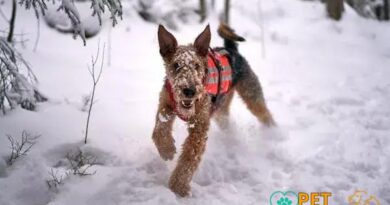O que é kennel conditions
What Are Kennel Conditions?
Kennel conditions refer to the environment and circumstances in which dogs are housed, particularly in commercial breeding facilities, shelters, or boarding kennels. These conditions can significantly affect the physical and mental well-being of the dogs. Understanding what constitutes proper kennel conditions is crucial for ensuring that dogs are kept in a safe, healthy, and humane environment.
Importance of Proper Kennel Conditions
Proper kennel conditions are essential for the health and happiness of dogs. Poor conditions can lead to a range of issues, including stress, anxiety, and health problems. Dogs require adequate space, clean living areas, and social interaction to thrive. When kennel conditions are subpar, it can result in behavioral issues and a decline in overall health.
Key Elements of Kennel Conditions
Several key elements define good kennel conditions. These include adequate space for movement, proper ventilation, cleanliness, and access to fresh water and food. Additionally, the kennel should provide a comfortable resting area, protection from extreme weather, and opportunities for exercise and socialization. Each of these factors plays a vital role in maintaining the well-being of dogs in a kennel setting.
Space Requirements in Kennels
Space is a critical component of kennel conditions. Dogs need enough room to stand up, turn around, and lie down comfortably. The size of the kennel should be appropriate for the breed and size of the dog. Overcrowding can lead to stress and aggression among dogs, making it essential to adhere to recommended space guidelines to promote a peaceful environment.
Cleanliness and Hygiene
Maintaining cleanliness is paramount in kennel conditions. Regular cleaning of the kennel area helps prevent the spread of diseases and parasites. This includes sanitizing surfaces, removing waste promptly, and ensuring that bedding is clean and dry. A hygienic environment not only protects the health of the dogs but also contributes to a more pleasant atmosphere for both the animals and the staff.
Ventilation and Temperature Control
Good ventilation is crucial in kennel conditions to ensure that fresh air circulates and to reduce the buildup of odors and harmful pathogens. Additionally, temperature control is vital to protect dogs from extreme heat or cold. Kennels should be equipped with proper heating and cooling systems to maintain a comfortable environment year-round, ensuring the dogs’ safety and comfort.
Nutrition and Water Access
Access to fresh water and nutritious food is a fundamental aspect of kennel conditions. Dogs should have constant access to clean water to stay hydrated, and their diet should meet their specific nutritional needs. Proper feeding practices are essential for maintaining the health and energy levels of dogs, particularly in a kennel environment where they may experience stress.
Socialization Opportunities
Socialization is a vital component of kennel conditions. Dogs are social animals that thrive on interaction with humans and other dogs. Kennels should provide opportunities for socialization through playtime, group activities, and individual attention from staff. This interaction helps reduce anxiety and promotes positive behaviors, contributing to the overall well-being of the dogs.
Legal Standards and Regulations
Various legal standards and regulations govern kennel conditions to ensure the humane treatment of dogs. These laws may vary by location but generally include guidelines on space requirements, sanitation, and care practices. Understanding and adhering to these regulations is essential for kennel operators to provide a safe and healthy environment for the dogs in their care.
Signs of Poor Kennel Conditions
Recognizing the signs of poor kennel conditions is crucial for advocates of animal welfare. Indicators may include excessive barking, signs of illness, aggressive behavior, and overall neglect. If you suspect that a kennel is not meeting proper conditions, it is important to report these concerns to the appropriate authorities to ensure the safety and well-being of the dogs.


